PLEASE READ IN THE STACK
As you read this, and consider how we now use technology remember that the result we are looking at now is:
the entire internet and all posts saved in perpetuity to be used against you;
with hate speech laws (hate not defined and is bolstered by the ‘studies’ they run. ie disputing climate change is racist or anti-trans and is hate or other quirky they write anything to achieve their goal-funded-BS-study) that involve life in prison;
known on line completely without any privacy, with your photo taken as you log in as you complete a post;
any post harmful to the deep state entities new goals are removed (think of the Kamala posts on being the most left senator disappearing, or early photos of the Biden presidency when his forehead was still wide etc. etc.);
QR codes for access to your life inverting a rights based existence into a paternal permissive based existence (wake up sleeping sheep. you will be mutton at this rate);
cameras and smart city infrastructure circumventing the globe and your neighborhood. (have you pointed them out to neighbors, electricians, technicians etc. Always use your opportunities to discuss and point out the technology that people are accepting without thought.);
with directed energy 5g that has the capacity to be deployed as beaming energy;
Here is a great summary of the ‘plan’ in a short VIDEO PLEASE WATCH
The scenarios plotted are Lock Step, Clever Together, Hack Attack, and Smart Scramble.
Here is a link of the entire document
“LOCK STEP – A world of tighter top-down government control and more authoritarian Leadership, with limited innovation and growing citizen pushback
CLEVER TOGETHER – A world in which highly coordinated and successful strategies emerge for addressing both urgent and entrenched worldwide issues
HACK ATTACK – An economically unstable and shock-prone world in which governments weaken, criminals thrive, and dangerous innovations emerge
SMART SCRAMBLE – An economically depressed world in which individuals and communities develop localized, makeshift solutions to a growing set of problems”
Lock Step is BIRD FLU
In 2012, the pandemic that the world had been anticipating for years finally hit. Unlike 2009’s H1N1, this new influenza strain—originating from wild geese—was extremely virulent and deadly. Even the most pandemic-prepared nations were quickly overwhelmed when the virus streaked around the world, infecting nearly 20 percent of the global population and killing 8 million in just seven months, the majority of them healthy young adults.
The pandemic also had a deadly effect on economies: international mobility of both people and goods screeched to a halt, debilitating industries like tourism and breaking global supply chains. Even locally, normally bustling shops and office buildings sat empty for months, devoid of both employees and customers.The pandemic blanketed the planet—though disproportionate numbers died in Africa, Southeast Asia, and Central America, where the virus spread like wildfire in the absence of official containment protocols.
But even in developed countries, containment was a challenge. The United States’s initial policy of “strongly discouraging” citizens from flying proved deadly in its leniency, accelerating the spread of the virus not just within the U.S. but across borders. However, a few countries did fare better—China in particular. The Chinese government’s quick imposition and enforcement of mandatory quarantine for all citizens, as well as its instant and near-hermetic sealing off of all borders, saved millions of lives, stopping the spread of the virus far earlier than in other countries and enabling a swifter post pandemic recovery
China’s government was not the only one that took extreme measures to protect its citizens from risk and exposure. During the pandemic, national leaders around the world flexed their authority and imposed airtight rules and restrictions, from the mandatory wearing of face masks to body-temperature checks at the entries to communal spaces like train stations and supermarkets.
Even after the pandemic faded, this more authoritarian control and oversight of citizens and their activities stuck and even intensified. In order to protect themselves from the spread of increasingly global problems—from pandemics and transnational terrorism to environmental crises and rising poverty—leaders around the world took a firmer grip on power. At first, the notion of a more controlled world gained wide acceptance and approval. Citizens willingly gave up some of their sovereignty—and their privacy—to more paternalistic states in exchange for greater safety and stability.
Citizens were more tolerant, and even eager, for top-down direction and oversight, and national leaders had more latitude to impose order in the ways they saw fit. In developed countries, this heightened oversight took many forms: biometric IDs for all citizens, for example, and tighter regulation of key industries whose stability was deemed vital to national interests.
In many developed countries, enforced cooperation with a suite of new regulations and agreements slowly but steadily restored both order and, importantly, economic growth.
Across the developing world, however, the story was different—and much more variable. Top-down authority took different forms in different countries, hinging largely on the capacity, caliber, and intentions of their leaders. In countries with strong and thoughtful leaders, citizens’ overall economic status and quality of life increased.
In India, for example, air quality drastically improved after 2016, when the government outlawed high emitting vehicles. (LL YOU PAYING ATTENTION INDIA)
In Ghana, the introduction of ambitious government programs to improve basic infrastructure and ensure the availability of clean water for all her people led to a sharp decline in water-borne diseases.
(LL Still current at: 30 July 2024
Updated:25 July 2024
Latest update: We reviewed our advice for Ghana and continue to advise exercise a high degree of caution overall. Higher levels apply in some areas. Avoid demonstrations, protests, large public events and intercommunity disputes as they can turn violent. Strikes can occur, affecting essential services. There's been an increase in reported incidents of banditry involving passenger buses travelling in the Upper West and Upper East regions. Injuries and deaths have resulted (see 'Safety').
But more authoritarian leadership worked less well—and in some cases tragically—in countries run by irresponsible elites who used their increased power to pursue their own interests at the expense of their citizens.
There were other downsides, as the rise of virulent nationalism created new hazards: spectators at the 2018 World Cup, for example, wore bulletproof vests that sported a patch of their national flag.
(LL VIRULENT NATIONALISM -LOVING YOUR COUNTRY- IS BAD. IT IS A VIRUS BAD. HAHAHAHA.
WELL anyways NYT REPORTS IT IN 2018: The Hidden (and Not So Hidden) Politics of the 2018 World Cup
What this year’s tournament taught us about the upending of the global order and the conflicts between nationalism and globalization.
July 17, 2018” ESSENTIALLY JUST FOLLOW THE ROCKERFELLER GAMES AS A PLAN. THE NYT DOES) https://www.nytimes.com/2018/07/17/opinion/2018-world-cup-russia-politics.html
Strong technology regulations stifled innovation, kept costs high, and curbed adoption. In the developing world, access to “approved” technologies increased but beyond that remained limited: the locus of technology innovation was largely in the developed world, leaving many developing countries on the receiving end of technologies that others consider “best” for them.
Some governments found this patronizing and refused to distribute computers and other technologies that they scoffed at as “second hand.”
Meanwhile, developing countries with more resources and better capacity began to innovate internally to fill these gaps on their own.
Meanwhile, in the developed world, the presence of so many top-down rules and norms greatly inhibited entrepreneurial activity.
Scientists and innovators were often told by governments what research lines to pursue and were guided mostly toward projects that would make money (e.g., market-driven product development) or were “sure bets” (e.g., fundamental research), leaving more risky or innovative research areas largely untapped.
Well-off countries and monopolistic companies with big research and development budgets still made significant advances, but the IP behind their breakthroughs remained locked behind strict national or corporate protection.
Russia and India imposed stringent domestic standards for supervising and certifying encryption-related products and their suppliers—a category that in reality meant all IT innovations.
(LL: JUST ON TIME 2019 INDIA’S FRAME WORK FOR ENCRYPTION https://thequantumhub.com/wp-content/uploads/2020/08/Regulation-of-Encryption-TQH-Updated-08Apr19-Final.pdf
RUSSIA: https://www.orrick.com/en/Insights/2022/03/Expanded-Controls-on-Encryption-Software-Exports-to-Russia-and-Belarus)
The U.S. and EU struck back with retaliatory national standards, throwing a wrench in the development and diffusion of technology globally.
Especially in the developing world, acting in one’s national self-interest often meant seeking practical alliances that fit with those interests—whether it was gaining access to needed resources or banding together in order to achieve economic growth.
In South America and Africa, regional and sub-regional alliances became more structured. Kenya doubled its trade with southern and eastern Africa, as new partnerships grew within the continent.
China’s investment in Africa expanded as the bargain of new jobs and infrastructure in exchange for access to key minerals or food exports proved agreeable to many governments.
LL: China colonizes Africa; This is controlled by the Chinese Central Bank. remember all Central banks go back to the BIS. The BIS is a hub and spoke.
“Launched in 2014, One Belt One Road (一带一路), presented internationally as the Belt and Road Initiative, is China’s signature vision for reshaping its global engagements. It is strategic and comprehensive in scope and an essential component of the Communist Party of China’s (CPC’s) twin objectives of achieving national rejuvenation (zhonghua minzu weida fuxing, 中华民族伟大复兴) and restoring China as a Great Power (shi jie qiang go, 世界强国). It now spans three continents and touches 60 percent of the world’s population. The 65 or so countries that have so far signed on to the program (including approximately 20 from Africa) account for 30 percent of the world’s GDP and 75 percent of its energy reserves. Some 50 Chinese state owned companies are implementing 1,700 infrastructure projects around the world worth about $900 billion. One Belt One Road (OBOR) has been written into the state and ruling party constitutions as strategic priorities for China to attain Great Power status by the middle of the 21st century. All of China’s leaders have advanced this quest since the founding of the People’s Republic of China, but the pursuit has accelerated under President Xi Jinping.
OBOR directly supports many elements of China’s national security strategy. At a macro level, it seeks to reshape the world economic order in ways that are conducive to Beijing’s drive for Great Power status. One Belt One Road has two components. The Silk Road Economic Belt establishes six land corridors connecting China’s interior to Central Asia and Europe. It includes railroads to Europe, oil and gas pipelines from the Caspian Sea to China, and a high-speed train network connecting Southeast Asia to China’s eastern seaboard. The Maritime Silk Road establishes three “blue economic passages” knitted together through a chain of sea ports from the South China Sea to Africa that also direct trade to and from China.
The end state of One Belt One Road is the building of a new global system of alternative economic, political, and security “interdependencies” with China at the center.
One Belt One Road also increases Beijing’s control of critical global supply chains and its ability to redirect the flow of international trade. Central to these efforts are moves to open new sea lines of communication and expand China’s strategic port access around the world. In 2017, Chinese state-owned companies announced plans to buy or secure majority stakes in nine overseas ports, all located in regions where China plans to develop new sea lanes. This is in addition to the 40 ports in Africa, Asia, and Europe in which Chinese state-owned firms hold stakes worth a combined $40 billion.”
Strategic Rationale
The end state of One Belt One Road is the building of a “Community of Common Destiny for Mankind” (人类命运共同体), defined as a new global system of alternative economic, political, and security “interdependencies” with China at the center (zhongguo, 中国). For this reason, Chinese leaders describe One Belt One Road as a national strategy (zhanlüe, 战略), with economic, political, diplomatic, and military elements (综合国力), not a mere series of initiatives.”
Cross-border ties proliferated in the form of official security aid. While the deployment of foreign security teams was welcomed in some of the most dire failed states, one-size-fits-all solutions yielded few positive results. By 2025, people seemed to be growing weary of so much top-down control and letting leaders and authorities make choices for them.
Wherever national interests clashed with individual interests, there was conflict. Sporadic pushback became increasingly organized and coordinated, as disaffected youth and people who had seen their status and opportunities slip away—largely in developing countries—incited civil unrest.
In 2026, protestors in Nigeria brought down the government, fed up with the entrenched cronyism and corruption.
LL: literally this video surfaced two days ago saying the Nigerian government collapsed. a little early. maybe they are getting nervous.
Even those who liked the greater stability and predictability of this world began to grow uncomfortable and constrained by so many tight rules and by the strictness of national boundaries.
LL oh ya what ‘National Boundaries’. seeing the doing away of these in real time too.
The feeling lingered that sooner or later, something would inevitably upset the neat order that the world’s governments had worked so hard to establish.
Technological innovation in “Lock Step” is largely driven by government and is focused on issues of national security and health and safety.
Most technological improvements are created by and for developed countries, shaped by governments’ dual desire to control and to monitor their citizens. In states with poor governance, large-scale projects that fail to progress abound.
Technology trends and applications we might see:
• Scanners using advanced functional magnetic resonance imaging (fMRI) technology become the norm at airports and other public areas to detect abnormal behavior that may indicate “antisocial intent.”
LL NO STUDIES ON SAFE USE OF TECHNOLOGY BEING IMPLEMENTED JUST GO AND TECHNO OUR LIVES I love how they solve only for control with the new technology militarizing our lives.
• In the aftermath of pandemic scares, smarter packaging for food and beverages is applied first by big companies and producers in a business-to-business environment, and then adopted for individual products and consumers.
(LL NANOSMART DUST)
• New diagnostics are developed to detect communicable diseases.
(LL HAHAHAHA PCR. continue laughing if you wish.)
The application of health screening also changes; screening becomes a prerequisite for release from a hospital or prison, successfully slowing the spread of many diseases.
(SO NOT JUST TO GET IN, BUT TO GET OUT- THAT IS A SCENARIO WHERE YOU HAVE NO SYMPTOMS BUT YOU CANNOT GET OUT OF PRISON, FEMA, HOSPITAL, THEIR QUARANTINE Camp WITHOUT A CLEAN TEST- THIS IS A DANGEROUS APPLICATION OF state authority against personal liberties. it is perpetual disease interment in prison even without a single sick symptom)
• Tele-presence technologies respond to the demand for less expensive, lower bandwidth, sophisticated communications systems for populations whose travel is restricted.
5g?
• Driven by protectionism and national security concerns, nations create their own independent, regionally defined IT networks, mimicking China’s firewalls. Governments have varying degrees of success in policing internet traffic, but these efforts nevertheless fracture the “World Wide” Web.
LL now we have a push to own the whole net by EU UN OECD countries. no doubt China is doing this in their belt and road initiative throughout Africa.
What we are observing I usually find has been plotted. You would have to think we are experiencing highly coordinated coincidences in repeating layers to not think these aren’t game plans for world control.
This philanthropic societies are funding the organizations that serve their interests. they fund DEI, ESG, they fund media, censorship, they fund pharma they fund technology they fund Net zero.
and still people genuflect to their instruments of power and terror.
we need to pull up the weeds and plant ours. that is everywhere. that is transformative. that is in our businesses, our communities, our education, our councils, our school boards, top to bottom.
If you are a nihilist and want anarchy you will like just pave the way for their greater control. thinking our governments cannot be reclaimed is their psyop. the globalist reach and pollution has us in chains.
It is not a fait accompli that those in these organizations including the alphabet soups spying on us have to continue working against humanity.
They too can also meet their crossroads. what is set out does not have to be. they become whistle blowers, rat agents, turncoats and who knows what. Just because your title is netzero doesn’t mean you need to dive humanity to that zero.
we need to manifest our future too.
TAKE DOWN THE BEAST



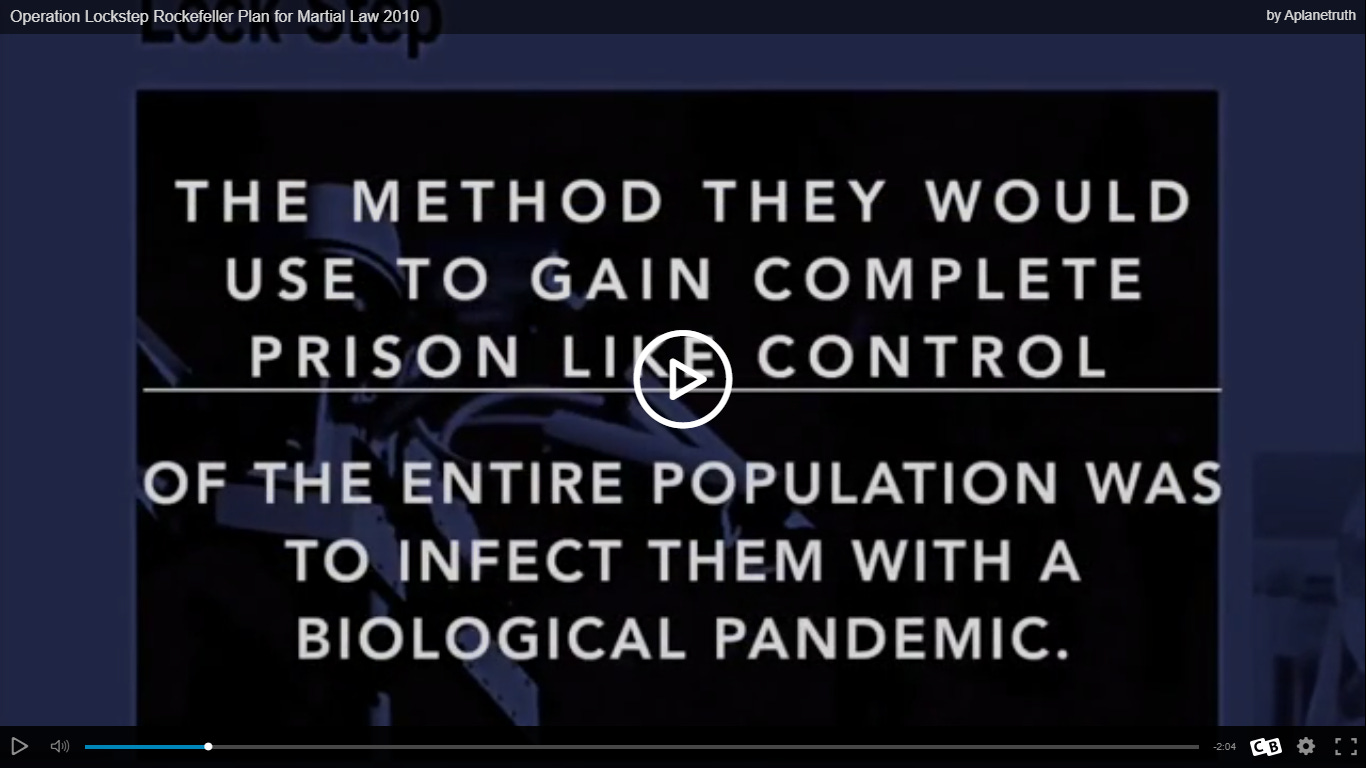
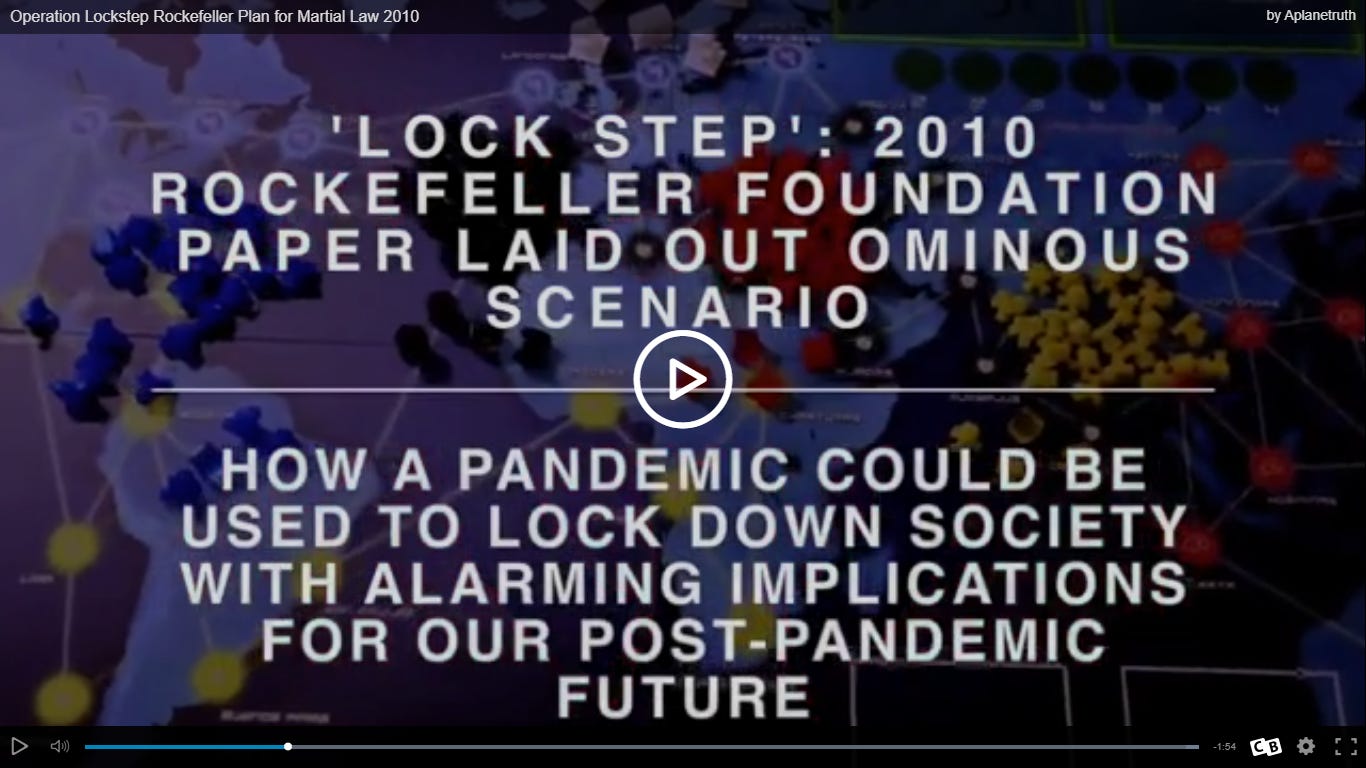
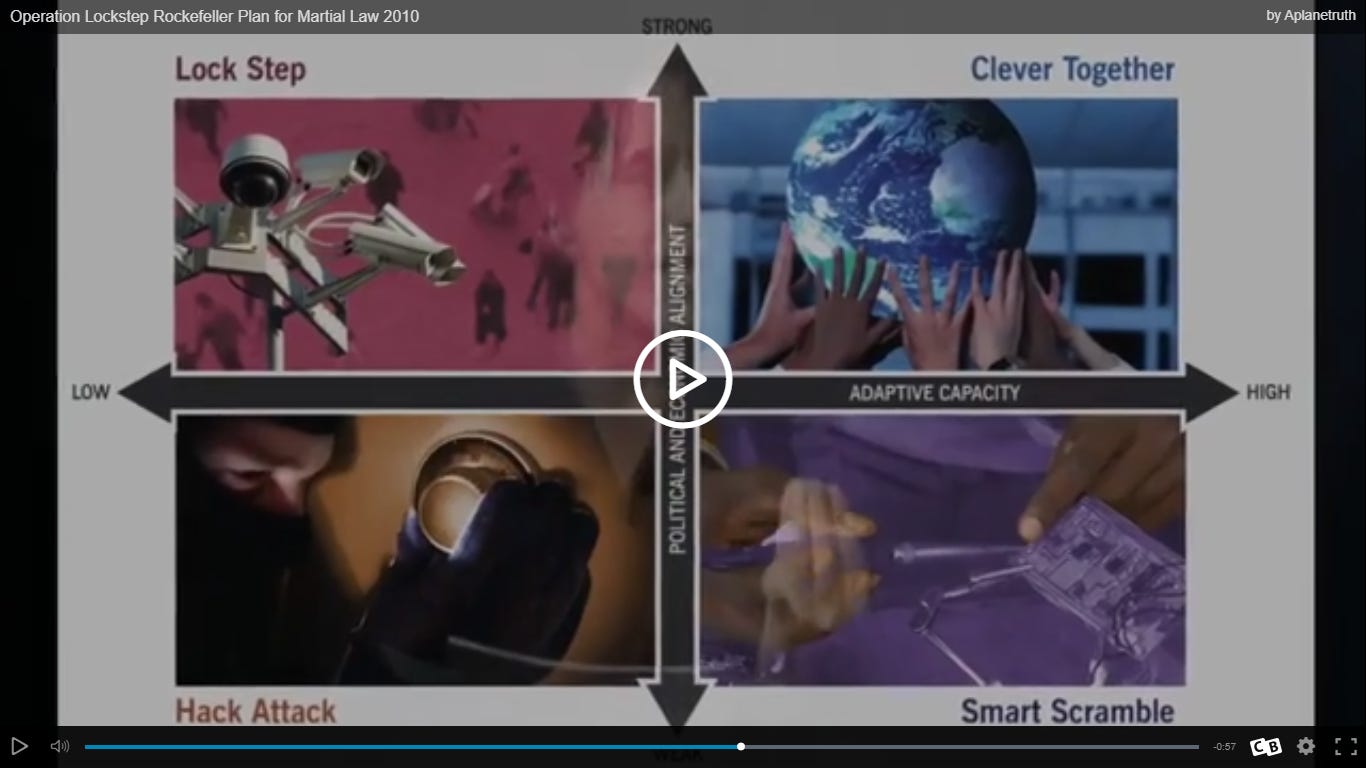
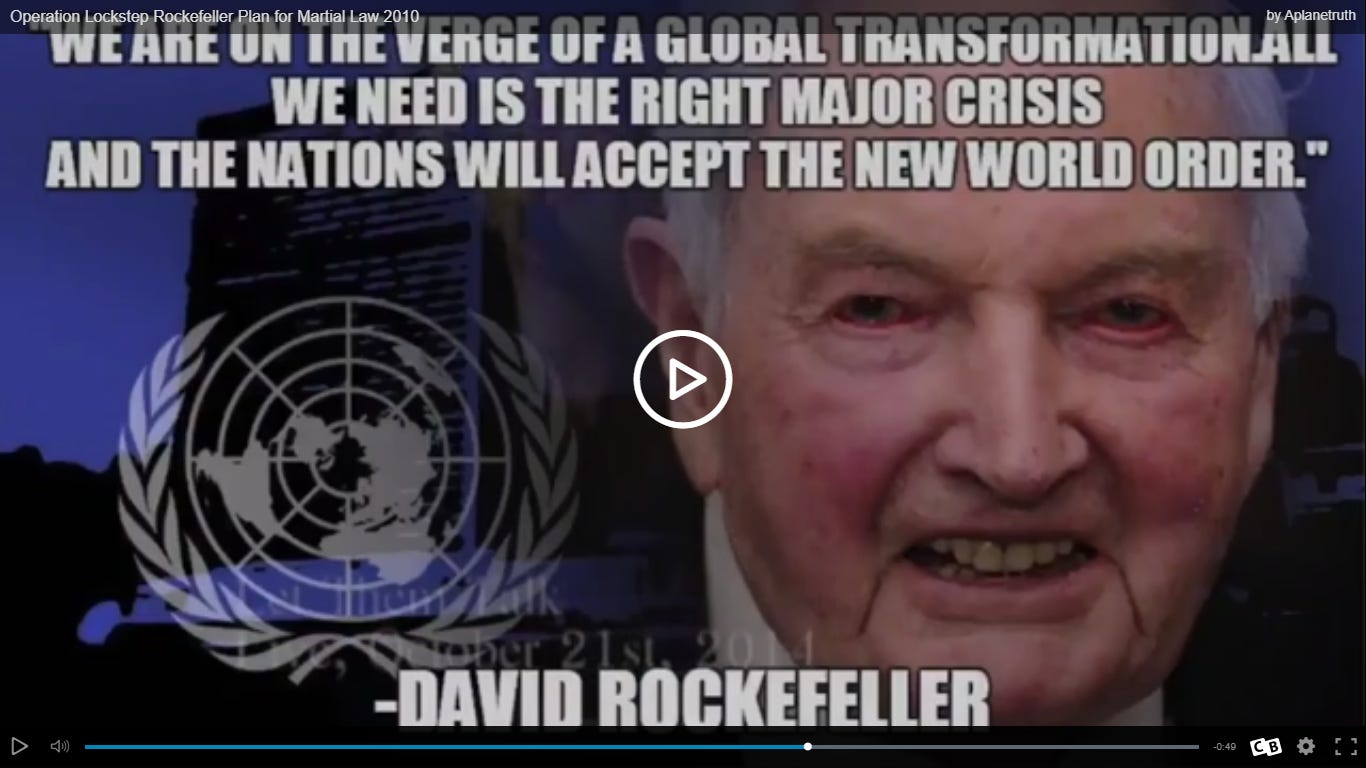
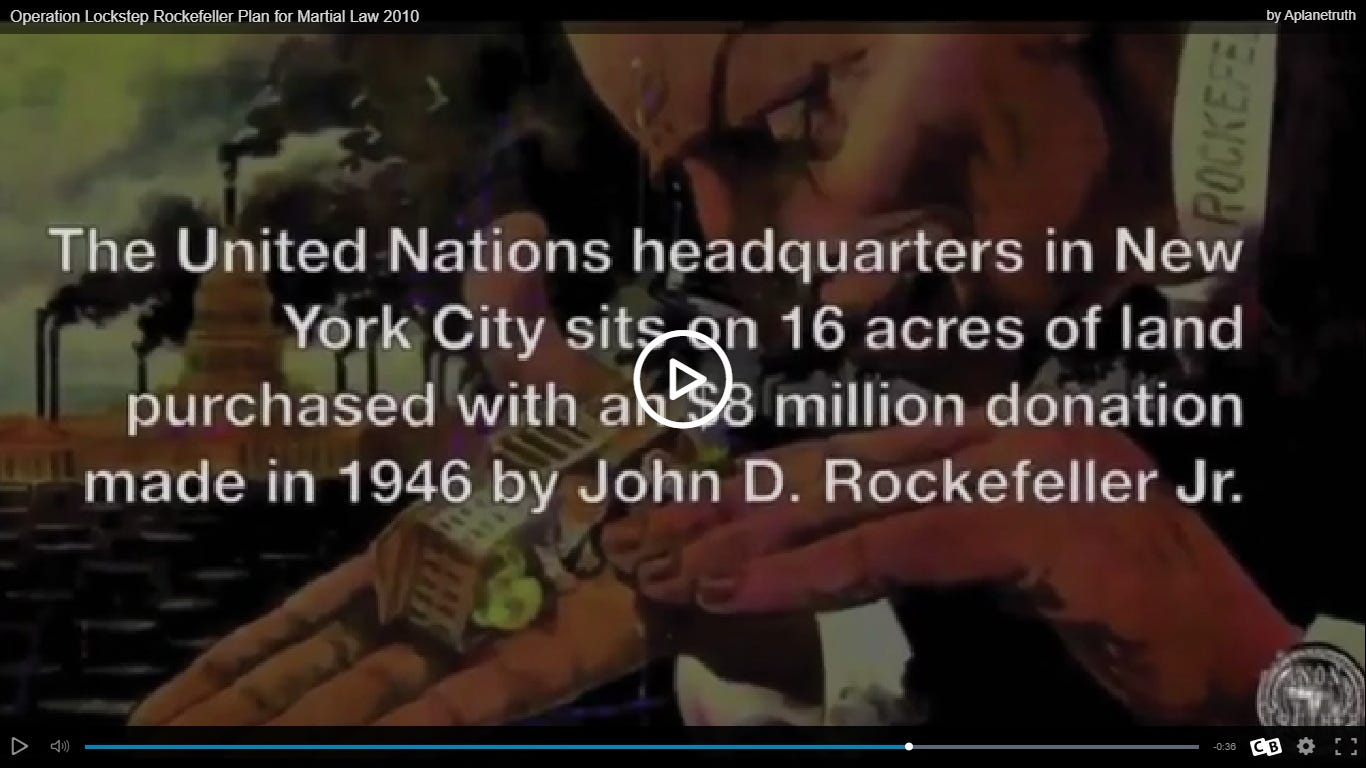
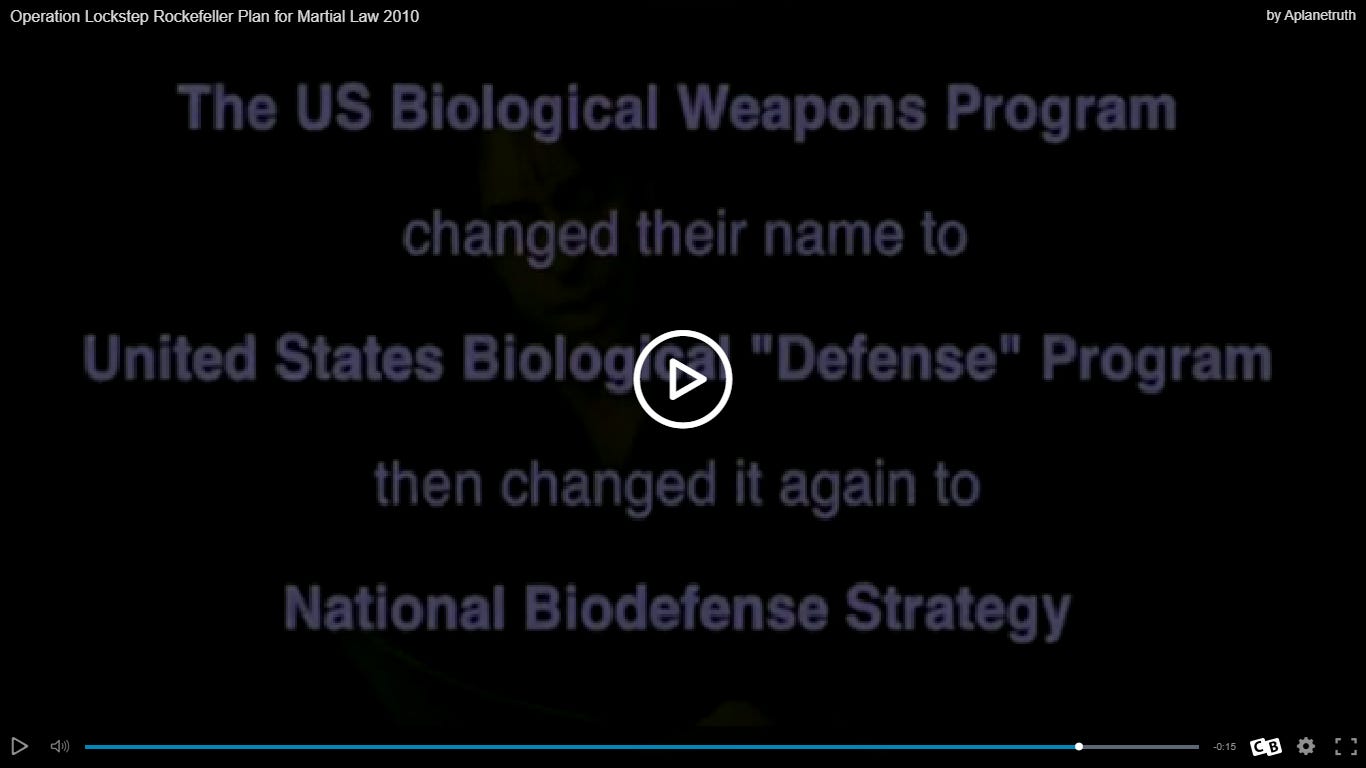

All these articles seem to suggest that our collective destiny is predetermined. At first glance, it may seem inevitable. Indeed, these decisions could lead to many losses (of lives). However, author John Leake suggests there is hope. He believes humanity has the capacity to overcome this Cultural Marxist takeover, as depicted here [https://petermcculloughmd.substack.com/p/the-unhumans-are-coming?].
See also this:
[https://www.thefp.com/p/venezuelans-are-fighting-for-freedom?]
Excellent article World Control by Elites